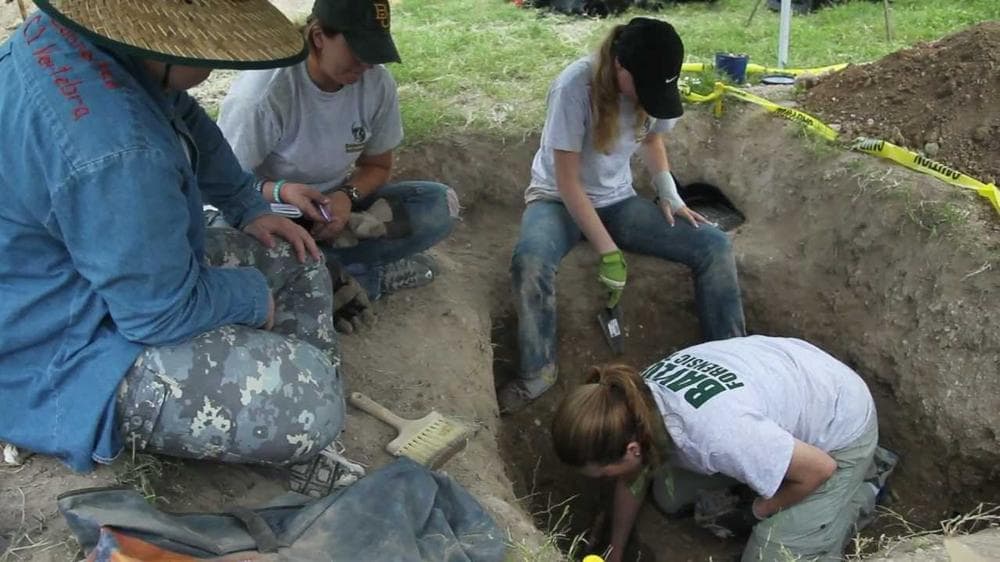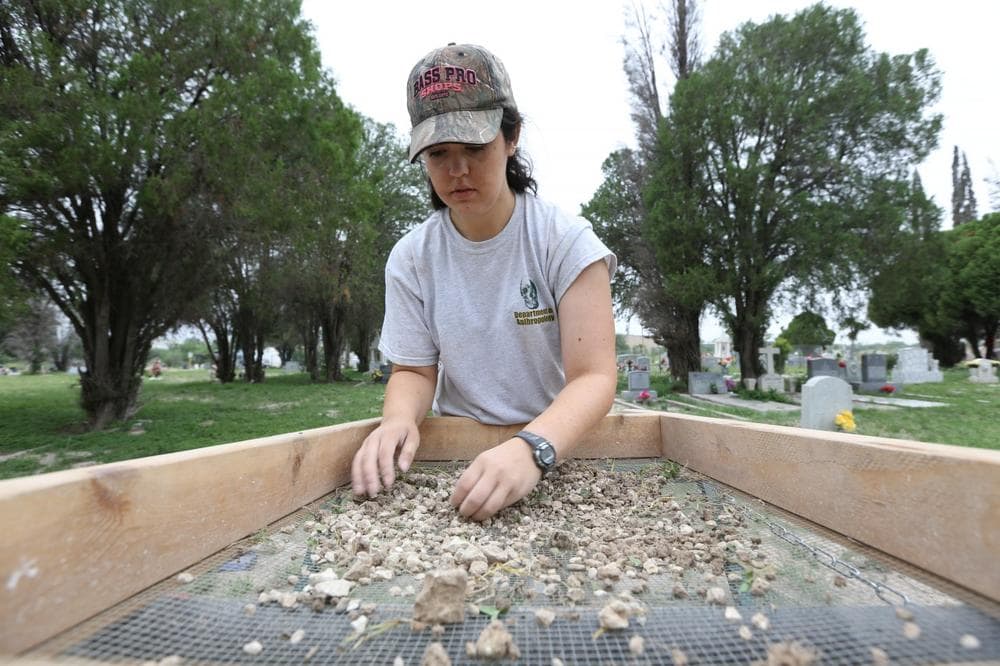Advertisement
Anthropologist Works To Return Migrants' Remains
Resume
Last year, U.S. border officials recorded 463 migrant deaths, the second-highest number in 15 years. Half of them were in Texas.
Brooks County, Texas, 950 square miles of tough desert terrain, has experienced more deaths than most. Just this year, 82 migrants have died in Brooks County alone.
Most of them are unidentified. But one person is trying to change that.
Lori Baker is a forensic anthropologist at Baylor University in Waco, Texas, and director of the “Reuniting Families” project, which attempts to identify the remains and match them with family members back home.
I believe all life is sacred, and it seems my duty to give dignity to these individuals by giving them a name.
Lori Baker
"Every mother I speak to says, 'Now I have a place to go and pray, now I have a place to lay flowers,'" Baker told Here & Now's Meghna Chakrabarti. "And the mothers that don't have answers, especially when they have young children — 15-year-old children — missing, the hope eats you alive every day."
Baker says she has noticed an increase in the number of unaccompanied minors making the crossing across the desert. She is afraid this might lead to a spike in fatalities.
Baker says she does this work because, as someone who came from a family without means, she identifies with the families' powerlessness to get information about their relatives' whereabouts.
"I can't imagine if my family were tasked with finding me in a foreign nation," Baker said. "And so I can imagine what these families must be going through in trying to find information and being so desperate, and so little being done on our side of our border. I'm also driven by my faith. I'm a Catholic and I believe all life is sacred, and it seems my duty to give dignity to these individuals by giving them a name."

Baker says her job can be very difficult, especially when remains in her lab are unable to be identified. She was struck by one particular boy who has yet to be identified. She guesses he is 15, and he was found with a backpack with a soccer ball on it.
"I think about him at least once a day, if not more, and have no idea what else we can do," Baker said. "It overwhelms me quite a bit. But I realize in public that this is the grief of the families, it's not my grief and it's not my place to feel as I do. So I usually save it until I'm in the laboratory by myself, and at night when I'm with my husband. I hold my boys close, and I cry for all of these families."
Guest
- Lori Baker, associate professor of anthropology at Baylor University and director of the Reuniting Families project.
This segment aired on November 21, 2013.